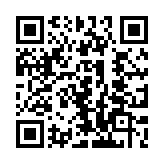Democracy and the democratic process are two terms that often go hand in hand. The democratic process is a certain order of interpreting and implementing democratic rules. It is also the way people set up agencies and rules to govern themselves.
The democratic process can be even the process whereby people’s interests and willingness to be governed are reflected in the way collective decision-making is made.
According to Robert A. Dahl, democracy is the process for making binding decisions which includes two stages;
- setting the agenda (matters are selected on which decisions are made) and
- deciding the outcome (the decisive stage where processes culminate in an outcome, with adoption or rejection of policy).
Furthermore, Dahl argues that if the setting of agenda is the first process, then the decisive stage is the last and that incomplete decisive stage renders decision-making tentative (uncertain or fixed) (Dahl, Democracy and its Critics, 1989: 107)
Table of Contents Show/Hide
What the democratic process entails
The democratic process implies effective participation, equal voting, enlightening, understanding the issues involved, and control of the agenda as the criteria of the democratic process.
The process assures that each member can think and act democratically. Fairness, respect of the rules et cetera, are produced by equal consideration (intrinsic quality), implying that some rights are fundamental to human existence and should not be alienated by any person or institutions.
The democratic process is in principle the visualization of the theory of political equality. It must reflect citizenship (rights), competence, participation (collective decision-making) and freedom of self-determination (autonomy).
The democratic process is the process of expressing primary political or inalienable rights through decision-making. It must promote effective participation, enlightenment, and final agenda control. The agenda controller defines the process and the production of its outcome.
Democracy narrowly focuses on holding a free and fair election. In a wider scope, it includes factors like:
- safeguarding political rights and civil liberties,
- the existence of good governance and the rule of law,
- free press. and
- a culture of political participation including robust civil society keeping the government engaged with its citizens.
Democracy is essentially about choice, the choice of policies and personalities. Free elections enhance freedom of choice.
In addition, are the freedoms of speech and association. Freedom of speech appeals to reason with the reason being the basis of democracy. Freedom of association conceives parties (groups with similar interests consolidating to formulate policies and to meet common ends). None of the freedoms are secured without the rule of law and an independent judiciary.
